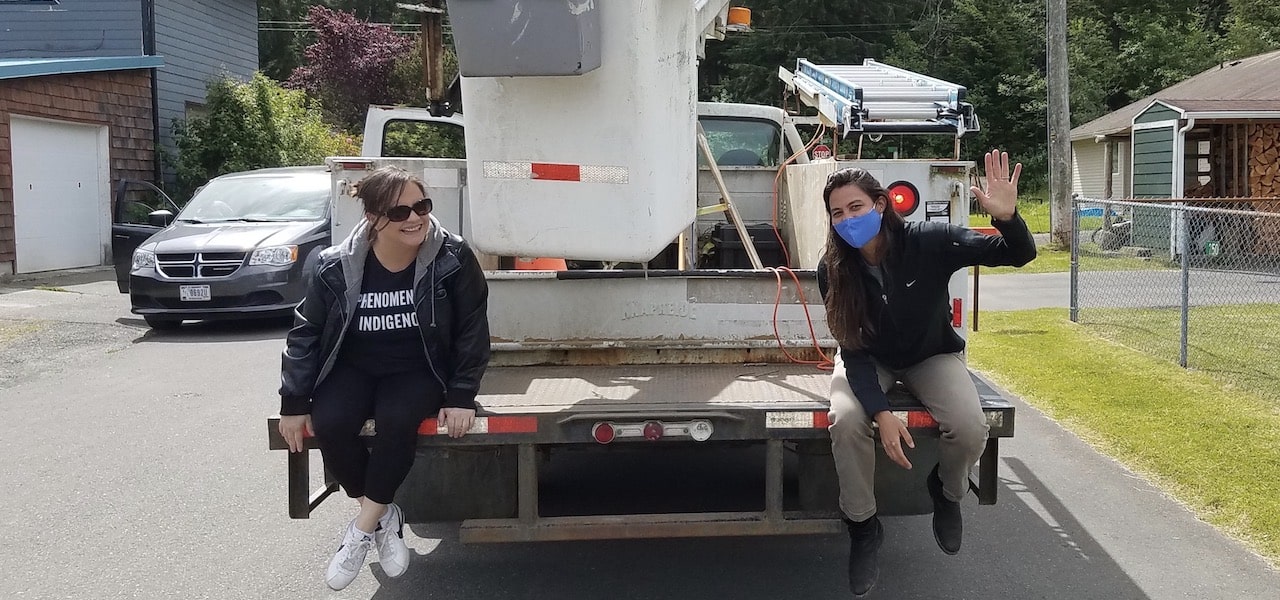See how the Makah Tribe launched an emergency network on EBS spectrum during COVID-19
The Makah Tribe has lived around Neah Bay at the northwest tip of what is now Washington State since time immemorial. It is a breathtaking landscape of dense rainforest and steep hills, far removed from any major urban center.
But for all its beauty, the hills, forests, and remoteness have made it difficult for the community to access quality high-speed Internet – and even cell and radio service.
In some areas, cell service was so poor that only certain spots worked: one community member had to go outside and stand beside a rhododendron bush to make a call or send a text. While Facebook is the main way people stay connected, many couldn’t access it. The local clinic struggled to use electronic records – it sometimes took upwards of 40 minutes just to get into the system. Even emergency responders, such as police and the fire department, couldn’t rely on the dispatch system that required Internet connectivity to operate.
And then the coronavirus began to sweep the world. The Makah closed the reservation to outsiders to protect the community. And its connectivity challenges became even more problematic. Students couldn’t get online to do schoolwork. Health workers couldn’t provide online consults or counseling. People confined to their homes under physical-distancing protocols couldn’t connect with one another. Like many other communities around the world, the lack of Internet access was an emergency within an emergency.
The Makah Tribe found a solution, almost overnight.
Educational Broadband Service, or EBS, is a band of spectrum (a space to transmit information over radio waves). Long ago, EBS was set aside in the United States for purposes that further the public good, primarily education. It has always been under-utilized and recently the Federal Communications Commission (FCC) announced intentions to drop the educational requirements and auction off the spectrum to the highest bidder.
But before selling it off, the FCC agreed to establish a window during which rural Tribal communities can get licenses to the unassigned EBS spectrum over their territory. This allows some of the most underserved regions to obtain the spectrum required to build their own Internet networks, become Internet Service Providers, lease the spectrum to other ISPs or use it as leverage in negotiations.
EBS is uniquely suited to remote locations, requiring fewer towers and less extensive infrastructure to reach hard-to-connect locations.
The Tribal Priority Window expires on 3 August, 2020, after which remaining spectrum will be sold off, likely to large telecoms.
The Makah Tribe partnered with MuralNet. Within days, the community had gathered the equipment – about $5,000 worth – required to launch its own network over EBS. They applied for a Special Temporary Authorization (STA) from the FCC, which would allow them to begin using the spectrum immediately and could later be expanded to a permanent license. It was granted on 27 May.
By 28 May, Makah had completed testing of the network, proving the network viability and speed that will provide high-speed Internet. It will also give them the ability to offer cell service even in the toughest-to-connect areas of the reservation.
The network is keeping people connected during the COVID-19 crisis – and it will provide long-term, sustainable, community-owned and operated Internet into the future.
Other Tribes across the United States can use EBS spectrum to make the same strides as the Makah. The Tribal Priority Window is closing soon and with it, a rare opportunity.
